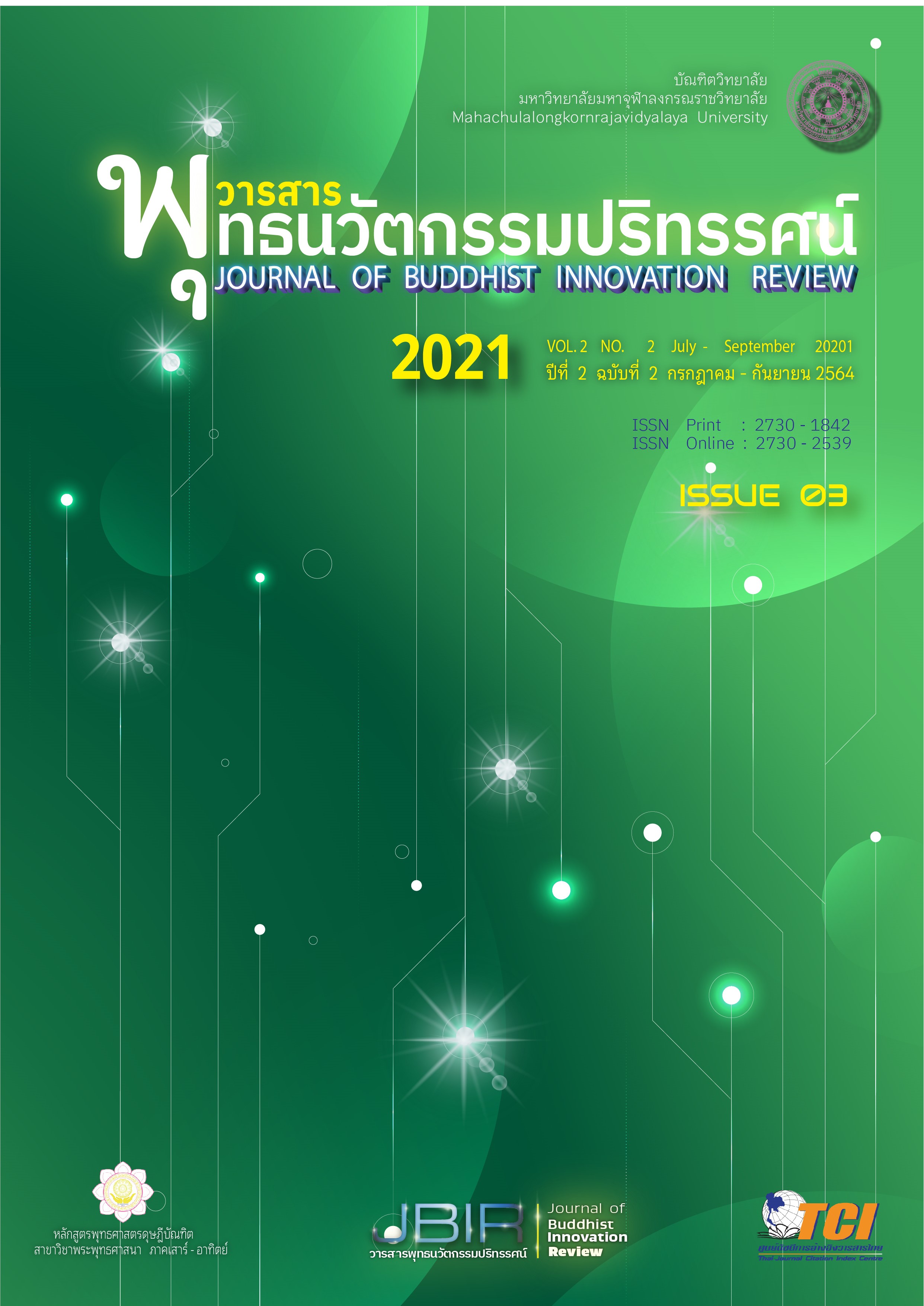IMPROVING THE QUALITY OF LIFE IN ACCORDANCE WITH THE PRINCIPLE OF MANGALA SUTTA
Main Article Content
Abstract
Abstract
Improving the quality of life is learning, training and striving to develop one's full potential based on the fundamental belief that humans are different from other animals with the intelligence that can be trained and developed. The Mangala Sutta principles are one of the accepted principles that can be used to improve quality of life. Individuals can implement the Dharma in accordance with the goals that have been set, or practice as a process in the sequence of 38 blessings (Mangala), which can be divided into 3 levels: (1) Improving the quality of life in the primary level; is a matter of creating one’s life which is related to society, education, and livelihood. (2) Improving the quality of life in the middle level; is a matter of improving one's life for the direct advancement of the mind in order to raise the mind to a higher level. (3) Improving the quality of life in the highest level for the extinction of defilements. It is a process aimed at practicing the Dharma to eliminate all of defilements. It is the creation of oneself to be the extinction of mental intoxication (Asava), attaining to an arahant, and leading to Nirvana, according to the ultimate aim of life development in Buddhism.
Keywords: improving, development, quality of life, Mangala Sutta
Article Details

This work is licensed under a Creative Commons Attribution-NonCommercial-NoDerivatives 4.0 International License.
เรื่องลิขสิทธิ์/เป็นความคิดเห็นของผู้เขียน
References
เอกสารอ้างอิง
หนังสือ
มหาจุฬาลงกรณราชวิทยาลัย. (2539). พระไตรปิฎกภาษาไทย ฉบับมหาจุฬาลงกรณราชวิทยาลัย. กรุงเทพมหานคร: โรงพิมพ์มหาจุฬาลงกรณราชวิทยาลัย.
มหาจุฬาลงกรณราชวิทยาลัย. (2553). อรรถกถาภาษาไทย ฉบับมหาจุฬาลงกรณราชวิทยาลัย.กรุงเทพมหานคร: โรงพิมพ์มหาจุฬาลงกรณราชวิทยาลัย.
พระพรหมคุณาภรณ์ (ป.อ. ปยุตฺโต). (2556). พจนานุกรมพุทธศาสน์ ฉบับประมวลศัพท์. พิมพ์ครั้งที่ 18. กรุงเทพมหานคร: สำนักพิมพ์ผลิธัมม์.


